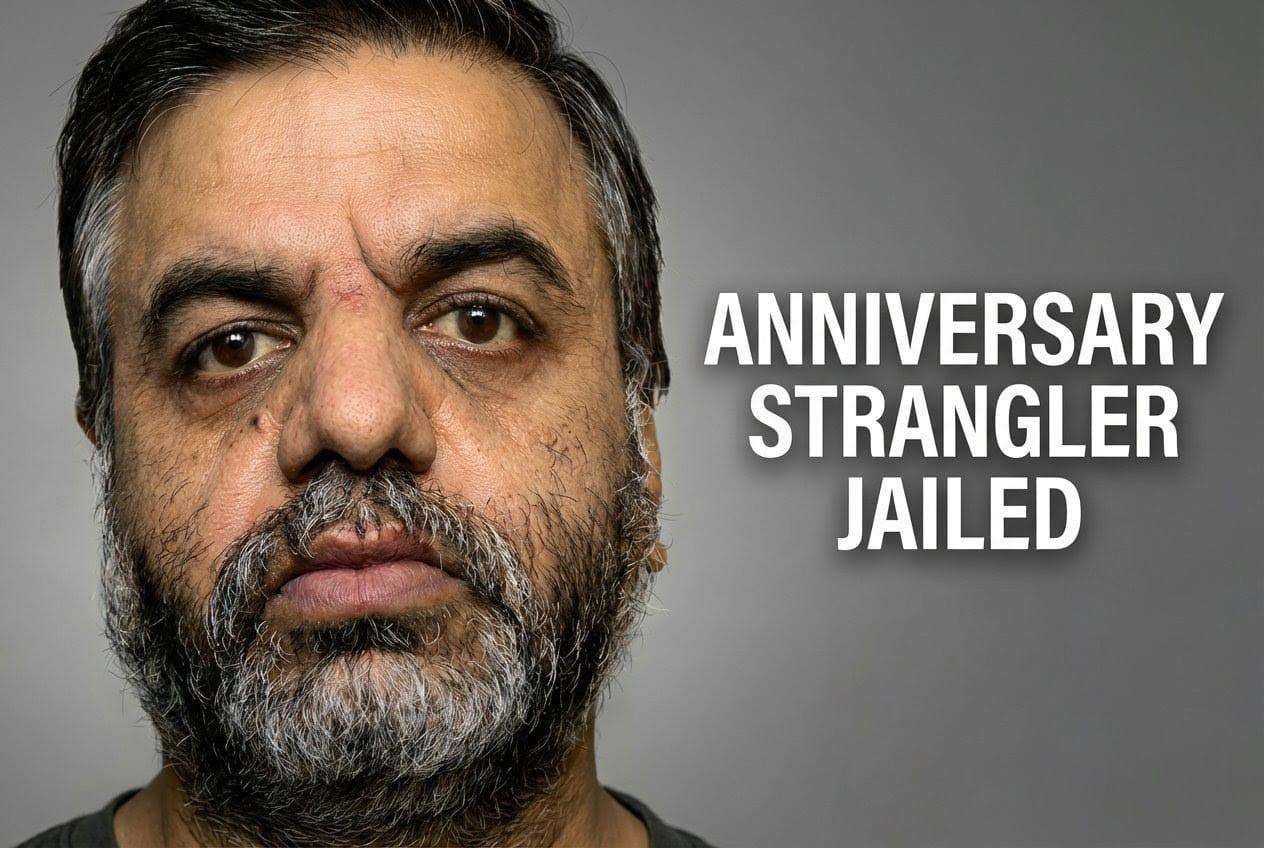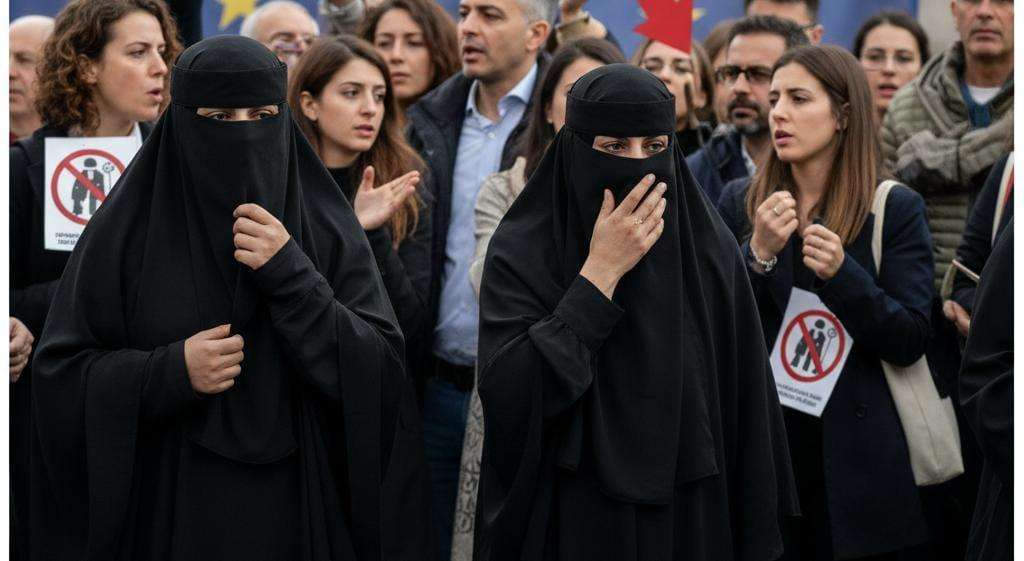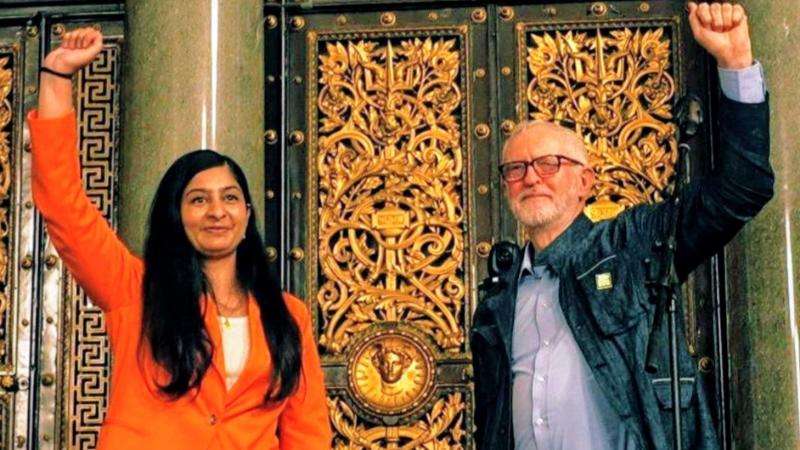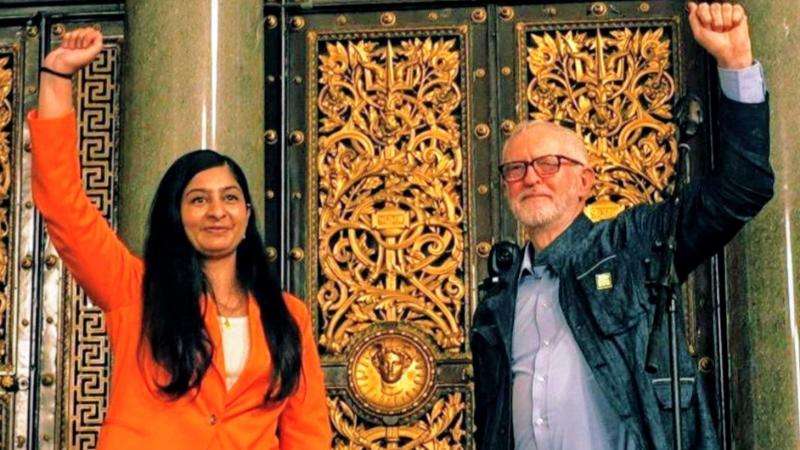The controversy over Islamic dress has reached a fever pitch, confirming a coordinated, global political strategy as new legislative bans are proposed and debated across Europe and Oceania. This is not a sudden phenomenon but the culmination of a decade-long ideological campaign that sees the burqa and hijab as proxies for wider anxieties about immigration and national identity.
The latest flashpoints reveal an escalating trend:
From Rome to Canberra: The Latest in the Anti-Veil Surge
The most recent surge has been ignited by the political right in Europe, quickly spilling over to other Western nations.
Italy's Push for a National Ban: The ruling Brothers of Italy party, led by Prime Minister Giorgia Meloni, tabled legislation in October 2025 to enforce a nationwide ban on the burqa and niqab in all public spaces, including schools, universities, and offices. Violators would face hefty fines of up to €3,000. This proposed law goes beyond previous regional restrictions (such as those in Lombardy) and is framed by the party as a necessary measure against "cultural separatism."
Spain's Widening Culture War: Spain’s far-right Vox party in the Balearic Parliament has pushed for more stringent measures, proposing a ban on the hijab in publicly funded schools and the cessation of Islamic religious education. While Spain’s conservative opposition, the People's Party (PP), has backed a public ban on the burqa and niqab for security and dignity concerns, they have rejected the Vox proposal against the hijab in schools, illustrating the delicate political balancing act. Spain already has partial bans in some localities, such as in parts of Catalonia.
Australia’s Echo: Following the Italian announcement, One Nation leader Pauline Hanson promptly reignited her call for a blanket ban on full-face coverings in Australia. Her synchronized demand is a clear example of how populist movements worldwide use European political actions to validate and advance their own domestic, anti-immigration agenda.
These countries join an established list of nations with full or partial public bans on face coverings, including France (2011), Belgium (2011), Austria (2017), Denmark (2018), and Switzerland (2021), all citing a mix of security, gender equality, and "living together" (social cohesion) as justification.
The Pre-Planned Strategy: A Transnational Culture War
The remarkable consistency in the timing and language across geographically distinct nations—from Italy and Spain to Australia—underscores that this movement is not spontaneous. It is a calculated, long-term political strategy led by a transnational network of populist parties. These groups utilize the highly visible symbol of the burqa and niqab as a proxy for larger debates about immigration, cultural identity, and perceived threats to national secularism. When one country legitimizes the ban, it provides the ideological validation and political momentum for others to follow suit.
The Fundamental Human Rights Defense: Autonomy, Freedom, and Pluralism
The global momentum for the ban is met with unified condemnation from human rights advocates, legal bodies, and Muslim women themselves, who argue that state-imposed restrictions on religious dress constitute a profound violation of fundamental freedoms.
Upholding Freedom of Conscience: Banning a religious garment directly infringes upon the right to freedom of religion and expression (Article 18, UDHR). To criminalize an act of piety or personal identity is a severe act of institutional discrimination against a religious minority.
Protecting Women's Autonomy: The argument that bans "liberate" women is disingenuous, as it merely substitutes potential familial coercion with state coercion. For many women, wearing the veil is an autonomous choice rooted in faith and dignity. The ban strips them of this fundamental right to define their own dress and self-presentation.
Preventing Social Marginalization: Criminalizing religious wear inevitably pushes women out of public life, specifically from access to education and employment—the very spheres essential for integration and empowerment. As seen with the Spanish proposals, targeting the hijab in schools isolates young Muslim women at a critical stage of their development.
Secularism Requires Neutrality: A liberal, democratic state must uphold neutrality towards all beliefs. By prohibiting a religious symbol, the state actively takes a hostile, non-neutral position, effectively legislating in favour of a specific, culturally dominant norm of public appearance.
Disproportionate and Targeted Law: Legal challenges, including those considered by the European Court of Human Rights, often highlight that a blanket public ban is a disproportionate response to security concerns. These issues can be adequately addressed through targeted measures, such as requiring face uncovering for identity verification at government offices or borders, without resorting to criminalizing a specific form of religious dress in general public spaces.








.svg)


